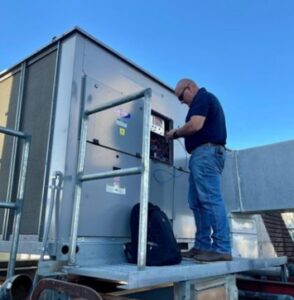On average, a colonoscopy takes between 15 and 45 minutes; however, ask your doctor’s office how long you can expect it to take to have a colonoscopy. They will help you calculate the total time for registration, pre-procedure, procedure and recovery.
How long does the recovery take?
You’ll be in a recovery area while you’re in the hospital or outpatient center for at least 30 minutes, but you should also plan to take the rest of the day off once you’re discharged. You will not be allowed to drive home even for the rest of the day. In most cases, you will be able to return to your normal diet.
Take it easy on the day of your colonoscopy. Especially after the colonoscopy. You may feel 100% better, but the sedation remains in your body for hours after the procedure. Therefore, do not drive, work, make important decisions or drink alcohol after the procedure.
Is colonoscopy safe or dangerous? What are the risks?
Colonoscopy is a safe procedure. Thousands are made every day. Most patients have few complications and return to their routine activities the next morning.
Be sure to talk to your medical team if you are taking medications and supplements (particularly blood-thinning medications), or using other medical devices.
At your doctor’s office, you will be told what to bring and whether to stop taking certain medications before undergoing a colonoscopy. This may require coordination with your prescribing physician (primary care, cardiology, neurology, etc.).
Since he is sedated, he must have someone drive him home. You must not drive, work or drink alcohol for the rest of the day.
However, every medical procedure carries its risks. It is important to discuss these with your doctor before having a colonoscopy. Although rare, some of these colonoscopy complications can occur, so contact your doctor immediately:
- dehydration
- bleeding
- Infection
- Intestinal perforation
- Bad reaction to anesthesia
- blood clotting
Not being screened for colorectal cancer puts you at greater risk. However, if you cannot have a colonoscopy, you have other screening options.
If you have a family risk of colorectal cancer, or if you have signs and symptoms, you should have a colonoscopy, as alternative screening options are not sufficient to exclude cancer in patients at higher risk due to family history or symptoms.
Is a colonoscopy painful?
Usually not. Most patients who undergo a colonoscopy say that the hardest part is the preparation (and in the grand scheme of things, it really isn’t that bad). This is why planning colonoscopies is important.
The procedure itself is not painful. You may feel some slight discomfort and pressure when the doctor inserts the endoscope, but this is rare. If you feel them, they last a short time.
Because gas is pumped into the colon to inflate it so doctors can see it well, gas and bloating are also common after a colonoscopy. However, as the day progresses, the air is coming out.
What is the age for colonoscopy?
All people considered medium risk for colorectal cancer have to start screening in 45 years. If you have a family history, or you see signs and symptoms, you may need to be screened sooner. If this is your case, you will need a colonoscopy, not another screening method.
I’ve Heard Colonoscopy Prep Is Awful: Is It True?
It can be. However, many improvements have been made to colonoscopy preparation over the years.
There are FDA-approved pills/tablets, drinks, and enemas for colonoscopy preparation. Your doctor likely has a preferred method of preparation (and instructions for it). But your doctor also has several options to choose from.
Some options are over the counter, others require a prescription. Some taste better than others.
The best quality preparations are those in which one part is taken at night and another in the morning (divided dose preparation). There are also preparations in which the amount of laxative you take is much less compared to other options (low volume bowel preparation).
If you’re not sure what’s best for you, ask your doctor or other patients. Choose the preparation that suits you best. And, if you make it to prep night and can’t complete the prescribed prep, call your doctor immediately. A thorough prep is the most important thing, and they can offer you another option to get completely clean.





More Stories
What Makes Handmade Olive Oil Bar Soaps So Special? A Friendly Guide to Choosing and Gifting Artisan Soap Sets
수원출장마사지: 집에서도 받는 힐링, 내 삶의 작은 사치
지친 하루에 휴식을 더하다: 출장안마의 모든 것